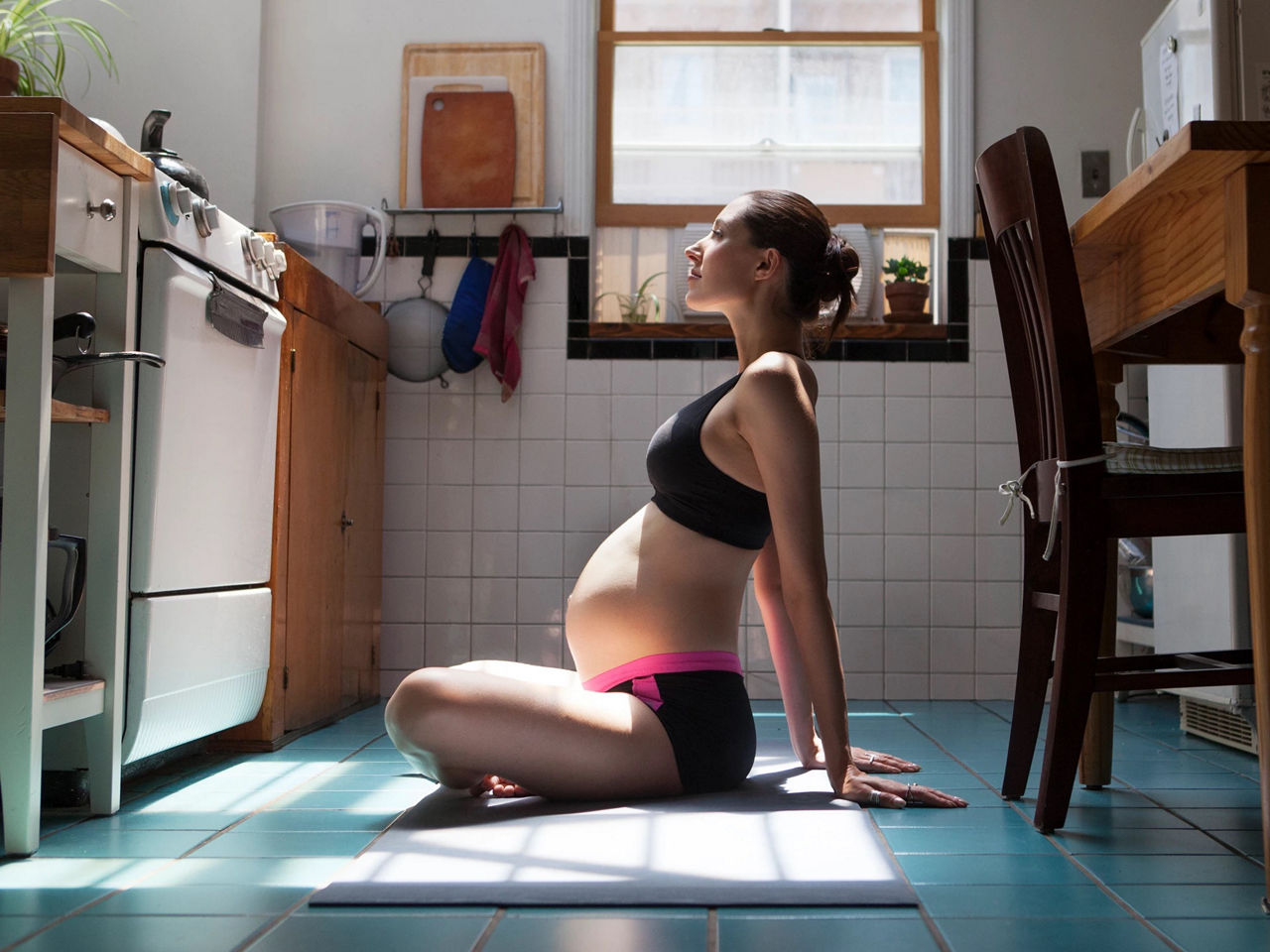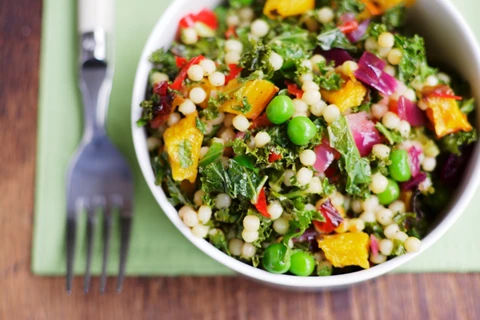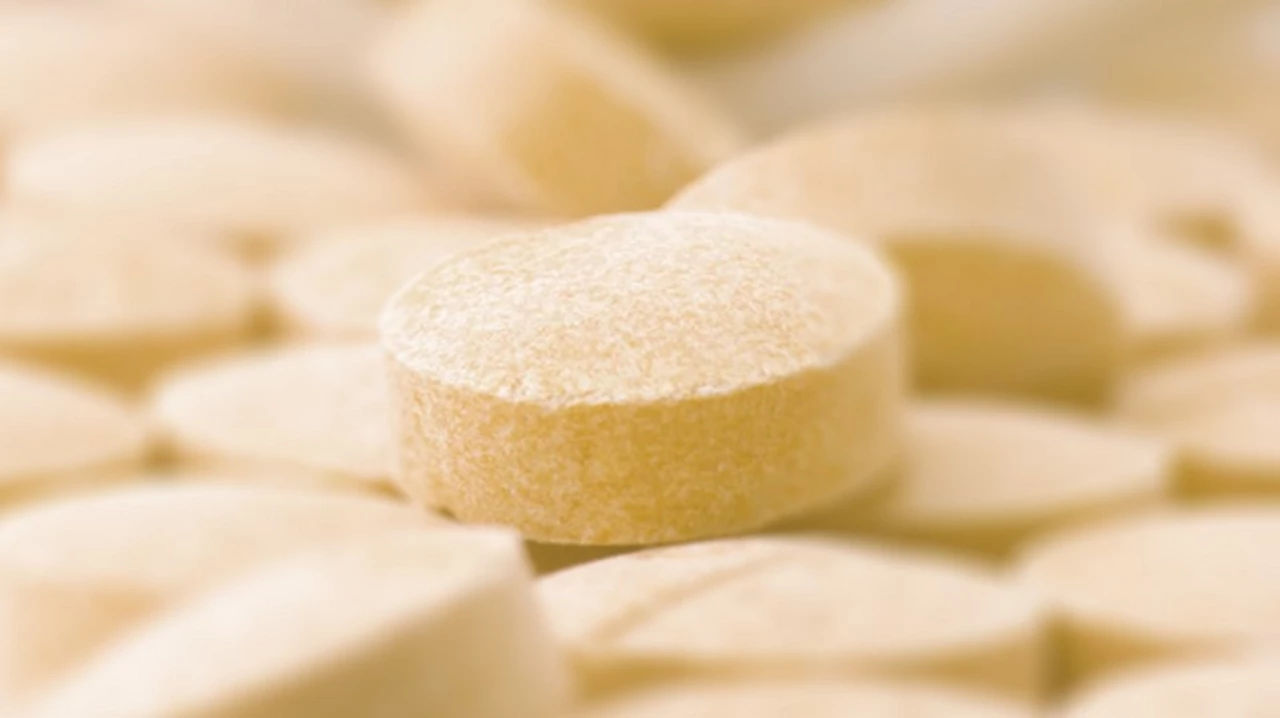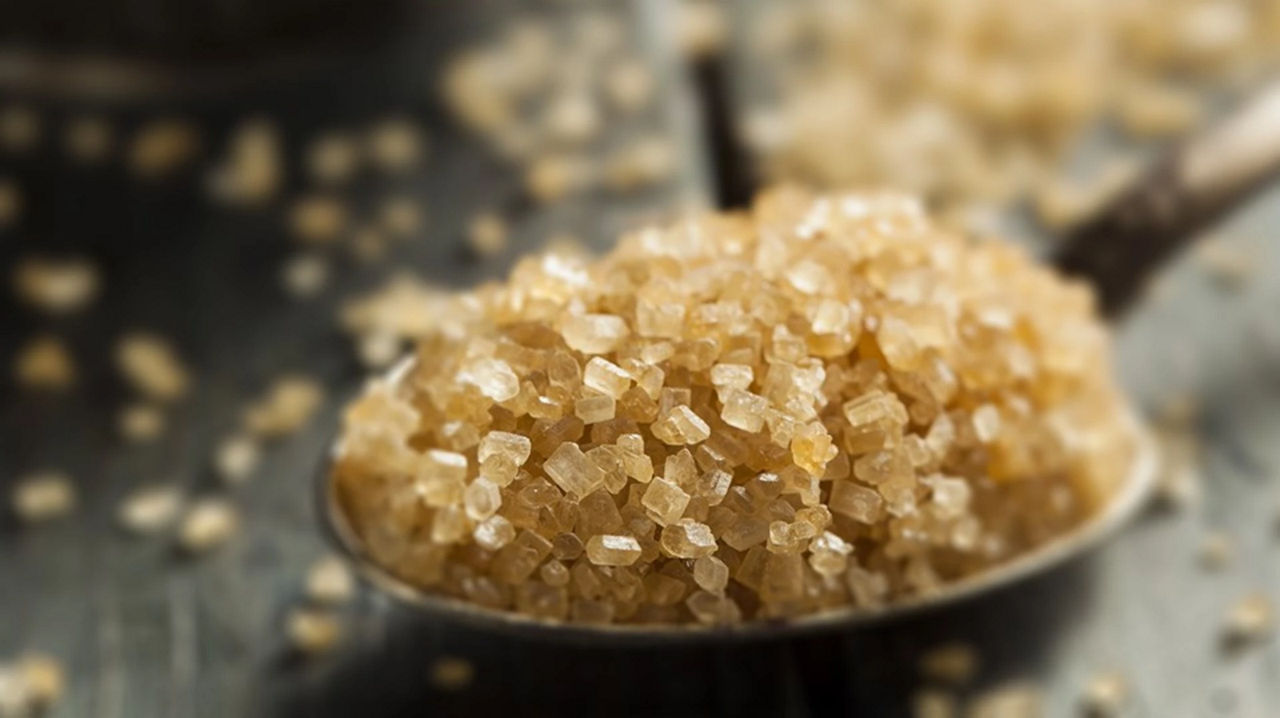20 Weeks Pregnant: Pregnancy Symptoms & Baby Development
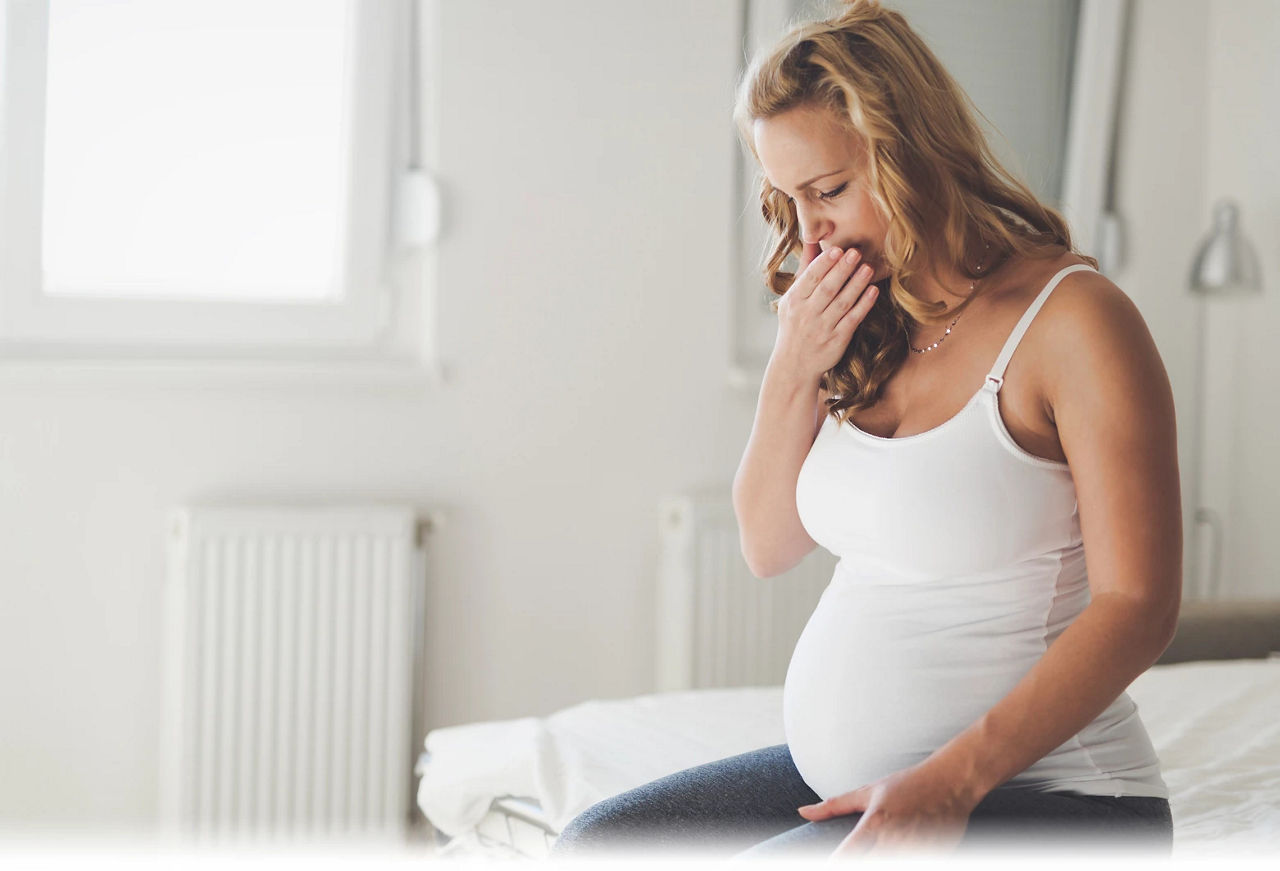
Explore pregnancy stages week by week
20 weeks pregnant is how many months?
Month 5 (Trimester 2)
It might be hard to believe, but at 20 weeks pregnant you’re now halfway through your pregnancy. With your baby focused on growing bigger and putting on weight, you might be getting ready to see them again on screen at your 20-week scan. This is also known as the anomaly scan, and if you choose to do so you can find out your baby’s sex1.
Let’s explore some of the developments happening for your baby this week, and some of the common pregnancy symptoms - including leg cramps, heartburn and constipation. We’ll also look at the changes happening to your body at 20 weeks pregnant, and why iron is vital to a healthy pregnancy diet.
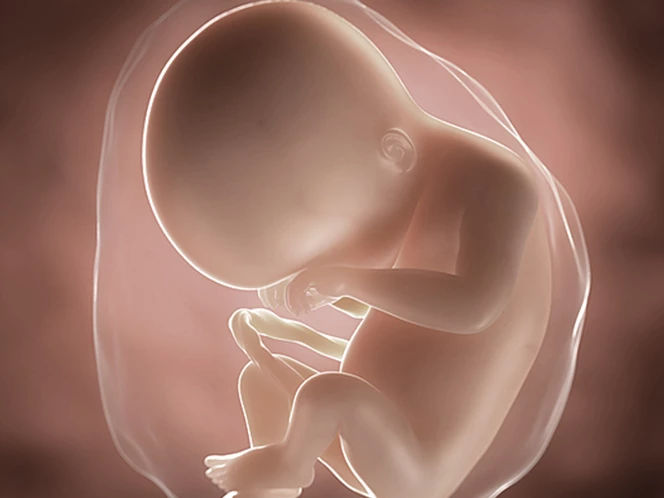
Your baby’s development at 20 weeks pregnant
During the second trimester, there’s a lot going on in terms of foetal development. Your baby is becoming more active, and you may already be feeling them rolling and tumbling as they punch, kick and turn in your uterus2. At this point in your pregnancy, your baby’s focus will be to continue putting on weight as they get ready for birth.
If you’re having a baby girl, her uterus will be developing, and her ovaries will already have seven million primitive eggs in them - two million of which she’ll be carrying at birth3. If you’re having a baby boy, then this is the week when the testes start lowering from his abdomen, dropping into the scrotum from 26 weeks4.
How big is my baby at 20 weeks pregnant, and what do they look like?
At 20 weeks pregnant, your baby (still referred to as a foetus) measures approximately 25.6 cm long and is around the size of a banana2. Your baby is now measured from their head to the heels of their tiny feet. This is instead of head to bottom, a measurement used earlier on in pregnancy when your baby’s legs were curled up and difficult to see2.
Your baby’s skin will now be covered with vernix (also known as vernix caseosa), a fatty, white and greasy substance. Because your baby will spend nine months floating in amniotic fluid, vernix protects your baby’s skin from drying out. It will also make it easier for your baby to ease down the birth canal when you go into labour2.
Your anomaly scan
This week, it might be time for you to attend your 20-week scan if you’ve opted to have one. Carried out by a sonographer at anywhere between 18 and 20 weeks, the 20-week scan is also known as the anomaly scan, or the anatomy scan. It’s an important part of your antenatal care as it will be able to determine a number of things about how your baby is developing physically.
The anomaly scan is also an opportunity for the sonographer to check that your placenta is functioning correctly1.
It’s important to understand that the anomaly scan is ultimately a medical examination, and looks closely at your baby's abdomen and kidneys, spinal cord, bones, heart and brain. Whilst it can’t pick up on every condition, it will check for conditions including1:
- Spina bifida
- Cleft lip
- Serious heart abnormalities
- Edwards’ and Patau’s syndrome
- Anencephaly
You’ll be supported throughout the ultrasound scan; in most cases, everything will be as it should be. However, if there’s a cause for concern, a doctor may come and take a closer look and you’ll be guided and advised about any next steps.
If you’d like to know your baby’s sex, you should be able to find this out at the 20-week scan.
Pregnancy at 20 weeks (second trimester): what’s happening in my body?
The placenta is working hard at 20 weeks pregnant, passing nutrients and oxygen to your baby and removing waste products5.
Whilst more common in later pregnancy, you may start to experience Braxton Hicks contractions. These are sometimes called practice contractions and are irregular and don’t last for long. They may feel uncomfortable or a little like a ‘tightening’, but they’re generally not painful6. If you find that the pain becomes more severe or is accompanied by bleeding, always seek advice from your doctor or midwife, as this could be a sign that you’re in early labour.
At 20 weeks pregnant, many women see a dark line develop down the middle of their tummy. This is completely normal and is down to the skin pigmentation as your baby bump gets bigger7. Around about now, you might also notice that hair feels thicker and shinier7.
20 weeks pregnant: signs and symptoms
Now that you’re halfway through your pregnancy, let’s take a look at some of the symptoms that you might be experiencing.
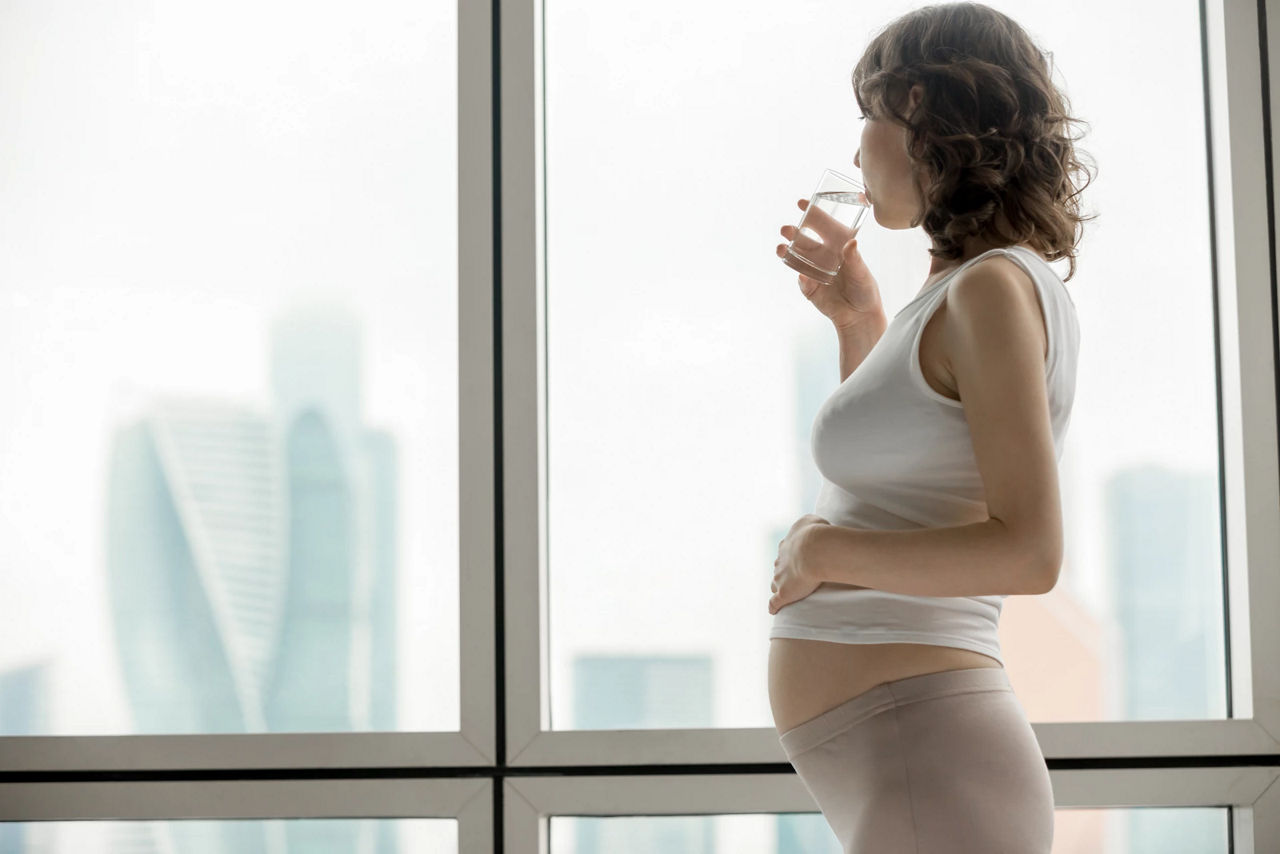
Bleeding gums are a common symptom of pregnancy and might be causing you discomfort at 20 weeks pregnant. Pregnancy hormones at work within your body can leave your gums more vulnerable to plaque, causing them to bleed8.
During your pregnancy you’re entitled to free dental care, and this continues for one year after your baby is born8.
As your baby grows and your uterus expands, the skin on your tummy stretches. As a result, you may notice stretch marks developing on your skin. They can be red, brown or pink, and once your baby is born, they’re likely to settle down and become paler in colour9. Stretch marks aren’t harmful to you or your baby, but they may feel itchy. There are several creams that claim to make stretch marks less visible, but there’s no definitive evidence that they work.
If you develop stretch marks, rest assured that this is a normal part of pregnancy, with 8 out 10 women experiencing them9.
At 20 weeks pregnant, frequent urination might be something you’re experiencing. As your baby grows and develops in the womb, they’re putting more pressure on your bladder, resulting in needing a wee more often10.
As the pregnancy hormone progesterone relaxes the muscles in your uterus, it relaxes the digestive system muscles as well. This can leave you feeling bloated and suffering with excess gas10.
Bloating and excess gas aren’t the only pregnancy symptom progesterone is responsible for. It also contributes to heartburn and indigestion, which are often made worse as a result of your baby getting bigger and pressing against your stomach11.
Pain and discomfort in your abdomen are common at 20 weeks pregnant. Also known as round ligament pain, it’s cause by your uterus getting bigger as your baby grows12. If the pain becomes more severe, or you experience any bleeding or unusual discharge, always seek medical advice from your doctor or midwife.
Leg cramps are another common pregnancy symptom and feel like a sharp and sudden pain in your calf muscles or feet. Leg cramps tend to happen more often during the night, and to manage any discomfort and reduce the risk of them happening, you could try13:
- Bending and stretching your feet on a regular basis - this can help to prevent leg cramp
- When leg cramp occurs, rub the muscles in the place where the pain is located.
- Pulling your toes up towards your ankles
- Rotate your feet in each direction up to 8 times in each direction
The hormonal changes in your body can result in constipation during pregnancy13. Constipation isn’t harmful to you or your baby, but it can cause you some discomfort. There are a number of things that you can try in order to ease the symptoms of constipation. These include13:
- Making sure that your diet includes a variety of fibre-rich foods. For example, wholemeal cereals and breads, lentils and beans, and lots of fruits and vegetables. Read more about the importance of fibre for a healthy pregnancy diet here
- Be sure to stay hydrated and drink plenty of fluids
- If you feel up to it, doing some exercise to keep your system moving
Exercising at 20 weeks pregnant

Exercising during your pregnancy has a number of benefits for you and your baby. As long as you haven’t been advised otherwise by your doctor or midwife, there’s no reason why you can’t fit regular exercise into your daily routine14.
Whether you’re already doing regular exercise, or you’re a complete beginner, it’s always a good idea to run your intended exercise plan by your healthcare provider. That way you’ll know you’re exercising at a level that’s right for you.
As a general rule of thumb, you should be able to easily have a conversation during exercise, so if you find yourself struggling for breath, it’s a sign that you’re overdoing things. Read more about exercising safely in pregnancy here.
You could try:
- Walking for 30 minutes every day14. If you can’t manage that amount, do what feels comfortable for you, as any level of exercise is beneficial
- Yoga. Pregnancy yoga will help to ease tension, relax your muscles and enable you to practise some breathing techniques15
- Swimming. Swimming is a really good pregnancy exercise as it will support the weight of your growing bump15
Focus on: Calcium
Reviewed by Bahee van de Bor
Widely recognised for its importance in the normal development of bones and teeth, calcium is an essential nutrient for your baby throughout pregnancy and childhood16.
Calcium comes from your diet, and an adequate intake stops your body withdrawing calcium from your own stores, which could affect your own bone health. So as well as helping your baby grow and develop normally, a healthy calcium intake in pregnancy is important for your own bone health too17.
Good sources of calcium include18:
- Dairy foods or fortified dairy alternatives
- Calcium-set tofu
- Green, leafy vegetables such as kale, broccoli and okra
- Fortified breads and cereals
- Fish, such as sardines and pilchards that are eaten with bones
If you’re vegan or follow a plant-based diet, or unable to eat dairy foods for another reason, you may need a calcium supplement during your pregnancy. Pregnant women require 700mg of calcium per day, with that requirement increasing to 1250mg during breastfeeding. It’s important to talk to your midwife or other healthcare professional before talking any supplements during pregnancy.
20 weeks pregnant: next steps
At 20 weeks pregnant, you’ll have decided whether you wish to have your anomaly scan. If you’ve chosen to do so, think about whether you’d like anyone to come with you, and have a read about what’s involved and what to expect.
If you’re struggling with some of the things you’re advised to avoid in pregnancy, for example smoking or your caffeine and alcohol intake, now is the time to have a chat with your midwife about strategies that can help.
If you’re planning to attend an antenatal class, you should start exploring what’s available in your local area. Your midwife may be able to help here, and let you know your options.
Other things to think about include:
- Making a birth plan
- Ensuring that you are eating a healthy balanced diet
- Deciding whether to have a birth partner present when your baby is born
- The things you will pack in your hospital bag - you can download our handy checklist here
related articles
Read More

Need some help?
You can get quick answers to common questions in our FAQs.
Alternatively, if you need help with general pregnancy or baby advice, or maybe on using or ordering our products - our expert team are always on hand to talk about feeding your baby.
NHS. 20-week screening scan [online] 2021. Available at https://www.nhs.uk/pregnancy/your-pregnancy-care/20-week-scan/. [Accessed January 2024]
NHS Start for Life. Pregnancy week 20 [online] Available at https://www.nhs.uk/start-for-life/pregnancy/week-by-week-guide-to-pregnancy/2nd-trimester/week-20/#look-like. [Accessed January 2024]
Telfer EE, Grosbois J, Odey YL, Rosario R, Anderson RA. Making a good egg: human oocyte health, aging, and in vitro development. Physiol Rev. 2023 Oct 1;103(4):2623-2677. doi: 10.1152/physrev.00032.2022. Epub 2023 May 12. PMID: 37171807; PMCID: PMC10625843.
Nemec, S.F., Nemec, U., Weber, M., Kasprian, G., Brugger, P.C., Krestan, C.R., Rotmensch, S., Rimoin, D.L., Graham, J.M., JR and Prayer, D. (2011), Male sexual development in utero: testicular descent on prenatal magnetic resonance imaging. Ultrasound Obstet Gynecol, 38: 688-694. Available at https://doi.org/10.1002/uog.8964
NHS University Hospitals Sussex. Low-lying placenta at 20 week scan. Available at https://www.uhsussex.nhs.uk/resources/low-lying-placenta-at-20-week-scan-2/#:~:text=Having%20a%20low%2Dlying%20placenta%20at%2020%20weeks%20means%20you,grows%20as%20your%20pregnancy%20progresses. [Accessed January 2024]
- NHS. Signs that labour has begun [online] 2022. Available at https://www.nhs.uk/pregnancy/labour-and-birth/signs-of-labour/signs-that-labour-has-begun/. [Accessed January 2024]
NHS. You and your baby at 20 weeks pregnant [online] 2021. Available at https://www.nhs.uk/pregnancy/week-by-week/13-to-27/20-weeks/. [Accessed January 2024]
NHS. Bleeding gums in pregnancy [online] 2022. Available at https://www.nhs.uk/pregnancy/related-conditions/common-symptoms/bleeding-gums/. [Accessed January 2024]
NHS. Stretch marks in pregnancy [online] 2022. Available at https://www.nhs.uk/pregnancy/related-conditions/common-symptoms/stretch-marks/#:~:text=Pregnancy%20stretch%20marks,-Stretch%20marks%20on&text=Stretch%20marks%20are%20narrow%2C%20streak,out%20of%2010%20pregnant%20women. [Accessed January 2024]
NHS Start for Life. Pregnancy week 10 [online]. Available at https://www.nhs.uk/start-for-life/pregnancy/week-by-week-guide-to-pregnancy/1st-trimester/week-10/. [Accessed January 2024]
NHS. Indigestion and heartburn in pregnancy [online] 2021. Available at https://www.nhs.uk/pregnancy/related-conditions/common-symptoms/indigestion-and-heartburn/. [Accessed January 2024]
NHS Kent and Medway. Bump, birth and beyond: Mid pregnancy [online]. Available at https://www.kentandmedwaylms.nhs.uk/my-pregnancy/my-pregnancy-journey/mid-pregnancy. [Accessed January 2024]
NHS. Common health problems in pregnancy [online] 2021. Available at https://www.nhs.uk/pregnancy/related-conditions/common-symptoms/common-health-problems/. [Accessed January 2024]
NHS. Exercise in pregnancy. [Online]. 2020. Available at https://www.nhs.uk/conditions/pregnancy-and-baby/pregnancy-exercise/. [Accessed January 2024]
NHS Start for Life. Exercising in pregnancy [Online]. Available at https://www.nhs.uk/start-for-life/pregnancy/exercising-in-pregnancy/. [Accessed January 2024]
NHS. Vitamins, supplements and nutrition in pregnancy. [Online]. 2023. https://www.nhs.uk/pregnancy/keeping-well/vitamins-supplements-and-nutrition
British Nutrition Foundation. Dietary calcium and health [Online]. 2005. Available at: https://www.nutrition.org.uk/media/30nfnmdi/dietary-calcium-and-health.pdf [Accessed March 2024]
The Association of UK Dieticians. Calcium [Online] . 2021. Available online at https://www.bda.uk.com/resource/calcium.html
Department of Health. Report on Health and Social Subjects 41. Dietary Reference Values for Food Energy and Nutrients for the United Kingdom. London: TSO, 1991
NHS University Hospitals Dorset. Iron deficiency and pregnancy [online] 2022. Available at https://www.uhd.nhs.uk/uploads/about/docs/our_publications/patient_information_leaflets/maternity/Iron-deficiency-and-pregnancy.pdf. [Accessed January 2024]
British Nutrition Foundation. Nutrition during pregnancy [online] 2015. Available at https://www.nutrition.org.uk/life-stages/pregnancy/healthy-eating-during-pregnancy/nutrition-during-pregnancy/#:~:text=Your%20body%20needs%20extra%20iron,iron%20as%20the%20pregnancy%20progresses. [Accessed January 2024]
McCann S, Perapoch Amadó M, Moore SE. The Role of Iron in Brain Development: A Systematic Review. Nutrients. 2020 Jul 5;12(7):2001. doi: 10.3390/nu12072001. PMID: 32635675; PMCID: PMC7400887


